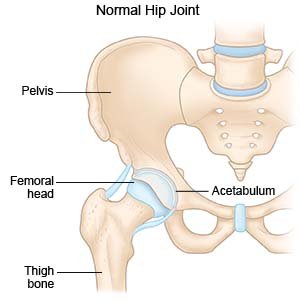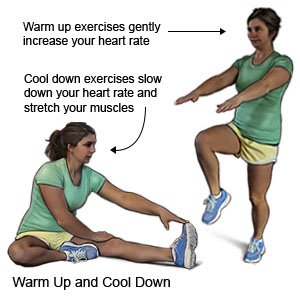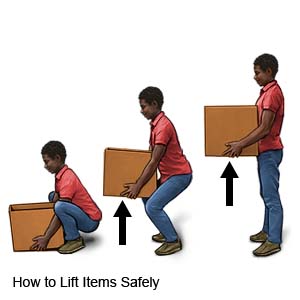Hip Bursitis
Medically reviewed by Drugs.com. Last updated on Aug 4, 2025.
Hip bursitis is inflammation of the bursa in your hip. The bursa is a fluid-filled sac that acts as a cushion between a bone and a tendon. A tendon is a cord of strong tissue that connects muscles to bones.
 |
DISCHARGE INSTRUCTIONS:
Call your doctor if:
- Your pain and swelling increase.
- Your symptoms do not improve with treatment.
- You have a fever.
- You have questions or concerns about your condition or care.
Medicines:
You may need any of the following:
- NSAIDs , such as ibuprofen, help decrease swelling, pain, and fever. NSAIDs can cause stomach bleeding or kidney problems in certain people. If you take blood thinner medicine, always ask your healthcare provider if NSAIDs are safe for you. Always read the medicine label and follow directions.
- Aspirin helps relieve pain and swelling. Take aspirin exactly as directed by your healthcare provider.
- Antibiotics help fight an infection caused by bacteria..
- Steroid pills may be given for a short time to relieve pain and swelling.
- Take your medicine as directed. Contact your healthcare provider if you think your medicine is not helping or if you have side effects. Tell your provider if you are allergic to any medicine. Keep a list of the medicines, vitamins, and herbs you take. Include the amounts, and when and why you take them. Bring the list or the pill bottles to follow-up visits. Carry your medicine list with you in case of an emergency.
Manage hip bursitis:
- Rest your hip as much as possible to decrease pain and swelling. Slowly start to do more each day. Return to your daily activities as directed. You may be able to use a cane or other device to take pressure off the hip as you walk.
- Apply ice to help decrease swelling and pain. Use an ice pack, or put crushed ice in a plastic bag. Cover the bag with a towel before you place it on your elbow. Apply ice for 15 to 20 minutes, 3 to 4 times each day, as directed.
- Do not lie on your injured hip. You may be more comfortable if you sleep on your stomach or back.
- Go to physical therapy, if directed. A physical therapist teaches you exercises to help improve movement and strength, and to decrease pain. If you play sports, the therapist can show you ways to run or jump that will help prevent hip bursitis.
Prevent hip bursitis:
- Do not overuse your hips. Shorten the time you spend running, climbing stairs, or riding a bike. Take breaks as you do these activities. Try not to do the same activities each day. For example, run every other day or every 3 days instead of daily.
- Stretch, warm up, and cool down. Always stretch and do warm-up and cool-down exercises before and after you exercise. This will help loosen your muscles and decrease stress on your hip. Rest between workouts.

- Wear proper shoes. Wear shoes that fit properly and support your feet. You may need to wear shoe inserts called orthotics. Orthotics help position your foot correctly as you walk or exercise.
- Maintain a healthy weight. Ask your healthcare provider what a healthy weight is for you. Ask him or her to help you create a weight loss plan if you are overweight.
- Keep pressure off your hips. Do not stand or sit for long periods of time. Sit on padded surfaces, such as a cushion or pad, whenever possible. Do not sit with your legs crossed. Bend your knees when you pick up objects from the ground.

Follow up with your doctor as directed:
Write down your questions so you remember to ask them during your visits.
© Copyright Merative 2025 Information is for End User's use only and may not be sold, redistributed or otherwise used for commercial purposes.
The above information is an educational aid only. It is not intended as medical advice for individual conditions or treatments. Talk to your doctor, nurse or pharmacist before following any medical regimen to see if it is safe and effective for you.
Further information
Always consult your healthcare provider to ensure the information displayed on this page applies to your personal circumstances.
